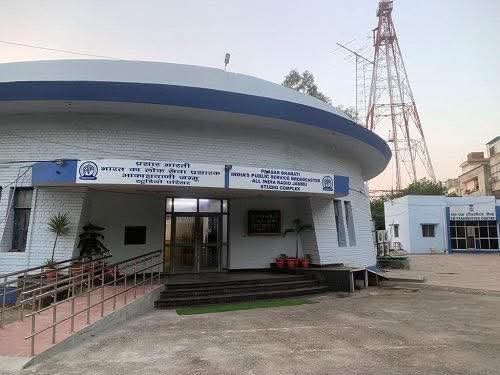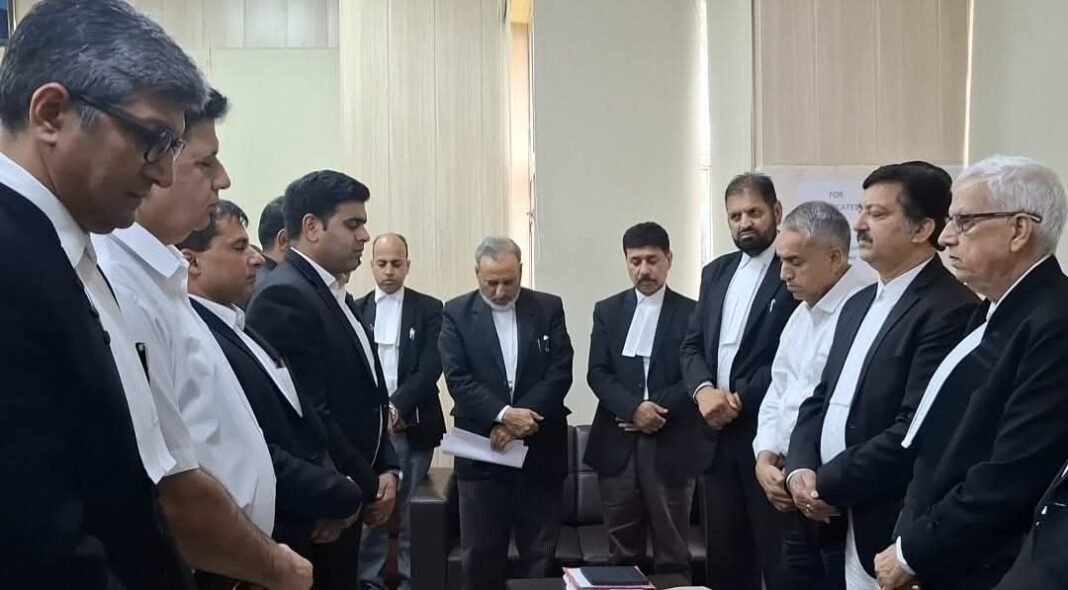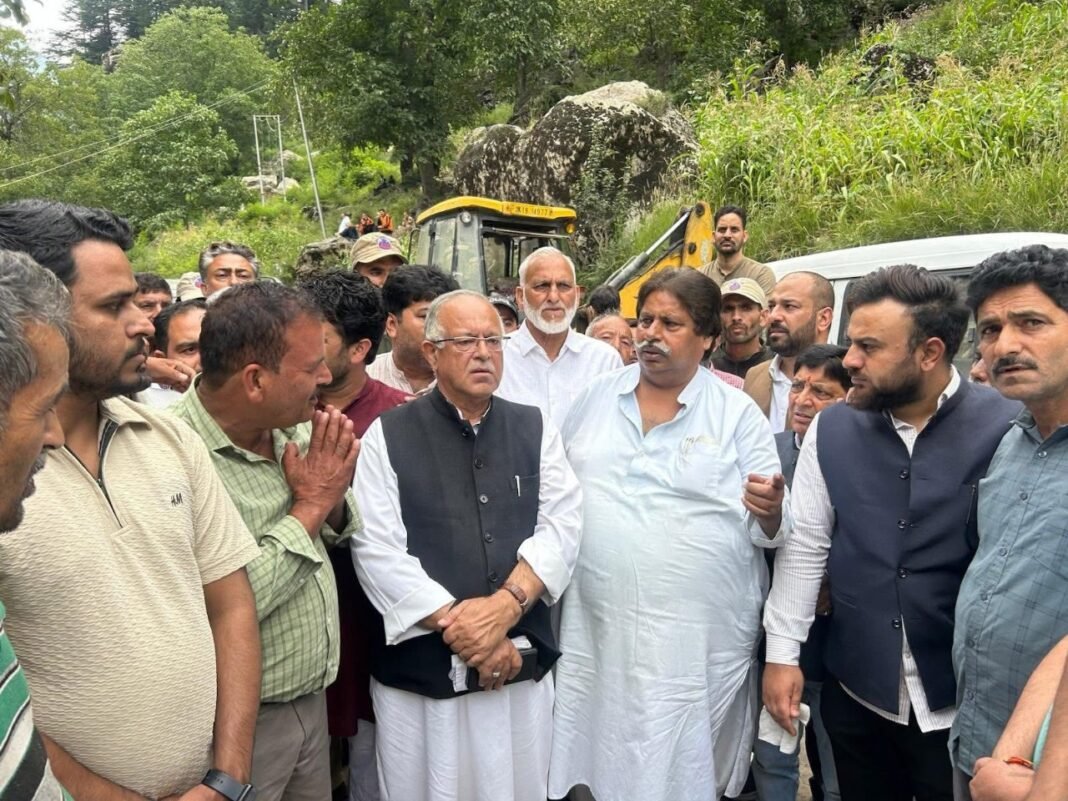‘Recruitees Fumbles, Prasar Bharti Crumbles‘
By Mohd Yaseen
(The writer is a National Scholarship and Fellowship Holder from the Ministry of Culture, Government of India in the field of Theatre)
The recent recruitment controversy at Prasar Bharati’s Regional News Unit, Jammu, has thrown open a window to the disturbing realities of favoritism, mismanagement, and erosion of institutional credibility. What should have been a transparent process to promote regional languages like Dogri and Gojri has instead exposed how fragile and compromised our systems become when temporary authority collides with permanent responsibility.
The recruitment of Editorial Executives and Newsreader-cum-Translators in Dogri was supposed to strengthen local broadcasting and give a platform to deserving youth. Instead, the episode is remembered for irregularities, procedural violations, and blatant internal manipulation. In the name of opportunity for regional talent, the process became a showcase of how personal networks and contractual influence can override fairness and legality.
The central charge lies in the role of contractual employees who were allowed to run critical aspects of recruitment without having any statutory power. In a national broadcaster where accountability is paramount, the sight of temporary employees conducting voice tests and even sitting in the chair of senior officials is not only irregular but deeply shocking. The presence of Jagmohan Sharma, who insiders say often acted in place of Assistant Director Gulshan Raina, raises sharp questions. Can a person with no permanent status in the organization be allowed to carry out functions reserved for senior officers? The answer lies in law and governance, and both seem to have been ignored.
Equally startling is the involvement of Vijay Bajaj, another contractual worker, who allegedly played an active role in conducting the recruitment tests. Voice tests are one of the most crucial elements in the selection of newsreaders and translators, but instead of being handled by authorized officers, they were reportedly managed by contractual hands. This is not a small procedural lapse. It is a direct assault on the sanctity of recruitment and on the trust of candidates who came forward with the hope of a fair assessment.
Adding insult to injury, the name of Professor Veena Gupta, a highly respected scholar of Dogri and former head of the Dogri Department at the University of Jammu, was misused as a supposed consultant for setting the examination paper. Professor Gupta herself clarified that she had no role in the process. This was not just a casual clerical mistake. It was a deliberate act to cloak a compromised selection with the veneer of scholarly endorsement. By misusing the name of an eminent academic, the organizers crossed the boundary from irregularity into deliberate deception.
But the consequences of these irregularities have become most visible on air. Even those who were finally selected are seen fumbling when they present their bulletins. Pronunciations falter, sentences break midway, and the flow of news collapses into hesitation. Listeners who tune in for clarity and confidence are instead greeted by confusion and stammering. When merit is sidelined and selections are made on the basis of dosti-yaari, favoritism, or other informal networks, the result is bound to be incompetence. Broadcasting is not a hobby; it requires training, fluency, and the ability to carry the trust of an entire audience. Sadly, this trust is being shattered every time an undeserving candidate takes the microphone.
This situation raises a haunting question: was the entire exercise meant to find the best voices for the job, or was it only meant to accommodate a chosen few? If personal friendships and hidden alliances decide who becomes a newsreader, then what future is left for hundreds of youth who prepare tirelessly, study for exams, and refine their skills in the hope of a fair chance?
The allegations do not end here. Insiders revealed that during the recruitment process, two highly qualified individuals who had once been associated with Akashvani were sidelined entirely. Their exclusion speaks volumes about the intentions behind the exercise. If merit and experience are deliberately ignored while questionable candidates are promoted, then the process cannot be described as anything but manipulation. The names repeatedly emerging in this manipulation are Jagmohan Sharma and Vijay Bajaj, who seem to have built an outsized influence within the unit.
The damage caused by such practices is not limited to a few failed candidates. It undermines the very spirit of public broadcasting. Akashvani is supposed to represent the voice of the people, provide a fair opportunity to regional language practitioners, and protect cultural diversity. When favoritism replaces merit, when procedural violations replace transparency, the entire credibility of the institution collapses.
The larger question is how such practices have been allowed to thrive. Yaseen and other cultural activists argue that there is a structural failure within the system. Contractual employees, instead of being limited to their defined roles, are often empowered to act like permanent officers. Government employees drawing hefty salaries are given casual duties in addition to their official assignments, thereby blocking opportunities for unemployed youth. The outcome is an atmosphere where insiders protect each other and outsiders, however qualified, are kept away.
This is not an isolated case. Reports suggest that similar irregularities are happening in other language sections, including Gojri. Appointments and selections are being influenced by informal networks rather than by transparent procedures. In effect, a public institution funded by taxpayers is being run like a private fiefdom, with a handful of people deciding who gets opportunities and who remains excluded.
The controversy has also highlighted the larger debate on governance. India is at a juncture where the government often speaks of transparency, accountability, and meritocracy. Prime Minister Narendra Modi’s vision of good governance emphasizes fairness and opportunity. But when a national broadcaster, operating under Prasar Bharati, permits such irregularities, it creates a sharp contradiction between vision and reality. The credibility of not just the organization but also of the broader system comes under question.
The incident also reflects how deeply entrenched favoritism has become in our institutional culture. Instead of nurturing new talent, organizations are often content to recycle the same names, empower the same insiders, and protect the same networks. For languages like Dogri and Gojri, which already struggle for visibility, such practices are doubly damaging. They deprive genuine practitioners of opportunities while pushing forward those who may not even have the required qualifications or experience.
What should have been a platform for promoting regional culture has thus been turned into a stage for personal gain. The misuse of authority by contractual employees is not just a breach of rules, it is a betrayal of the trust of young aspirants who prepare and compete in good faith. Every instance of unfair selection sends a message to talented youth that merit does not matter, that transparency is an illusion, and that institutions are in the grip of those who treat them like personal estates.
The outrage is growing. Cultural and linguistic circles in Jammu are demanding a thorough inquiry into the recruitment scandal. Yaseen himself has announced plans to file fresh RTI applications to obtain documentation of not just this recruitment but also other recent selections, including for the post of Copy Editor in the news section of Akashvani Jammu. The demand is simple: show the procedures followed, show the qualifications of those selected, and explain on what grounds the decisions were made. If transparency exists, there should be no hesitation in making these details public.
The worry, however, is that silence will prevail. Institutions often prefer to protect themselves by denying information rather than by acknowledging faults. But silence cannot erase the truth. The more Prasar Bharati delays action, the deeper the damage will be to its credibility. The more irregularities are swept under the carpet, the harder it will be to restore faith in the system.
This episode is also a cautionary tale about the broader state of public institutions in India. When authority becomes concentrated in the hands of a few individuals who operate without checks and balances, institutions begin to decay from within. Instead of being engines of opportunity and fairness, they turn into tools for personal networks and vested interests. The story of Akashvani Jammu’s Dogri recruitment is not just about one examination. It is about the future of public broadcasting and the future of regional languages in India.
Dogri and Gojri are not just academic subjects. They are living languages that carry the culture, history, and identity of millions of people. For years, activists, scholars, and cultural workers have fought to ensure that these languages receive institutional support and visibility. When recruitment processes meant to support these languages are corrupted, it is not just an administrative failure. It is an assault on cultural preservation itself.
There is still time for corrective action. An impartial inquiry, conducted by authorities who have no stake in the local networks, can restore some faith. Making the recruitment documents public, verifying the qualifications of selected candidates, and reviewing the role of contractual employees in decision-making would be important steps forward. More importantly, rules must be clarified and enforced to ensure that contractual staff remain within the limits of their appointments and are not empowered to act as de facto officers.
The youth of Jammu deserve better. The aspirants who dedicate years to preparing for such opportunities cannot be left at the mercy of insiders who bend rules. Institutions funded by public money must be accountable to the public. Prasar Bharati, as the national broadcaster, carries a special responsibility to set an example of transparency, not of manipulation.
If ignored, this controversy will not remain a local issue. It will become a symbol of how easily public institutions in India can be subverted by a handful of insiders. For every unfair selection, there are dozens of deserving candidates who lose not just an opportunity but also faith in the system. That erosion of faith is the most dangerous outcome, because when citizens no longer believe in the fairness of public institutions, the entire democratic framework is weakened.
The story of Akashvani Jammu’s Dogri recruitment scandal is still unfolding. Voices are rising, evidence is being gathered, and demands for inquiry are growing stronger. The ball is now in the court of Prasar Bharati. Will it act decisively to uphold fairness and accountability, or will it allow the damage to spread until the institution itself becomes a hollow shell?
For the sake of transparency, for the sake of regional languages, and for the sake of public trust, there can only be one acceptable path. The recruitment process must be investigated, the guilty must be held accountable, and the rules must be enforced. Anything less would not just be a failure of administration, it would be a betrayal of the very idea of public broadcasting.DD





